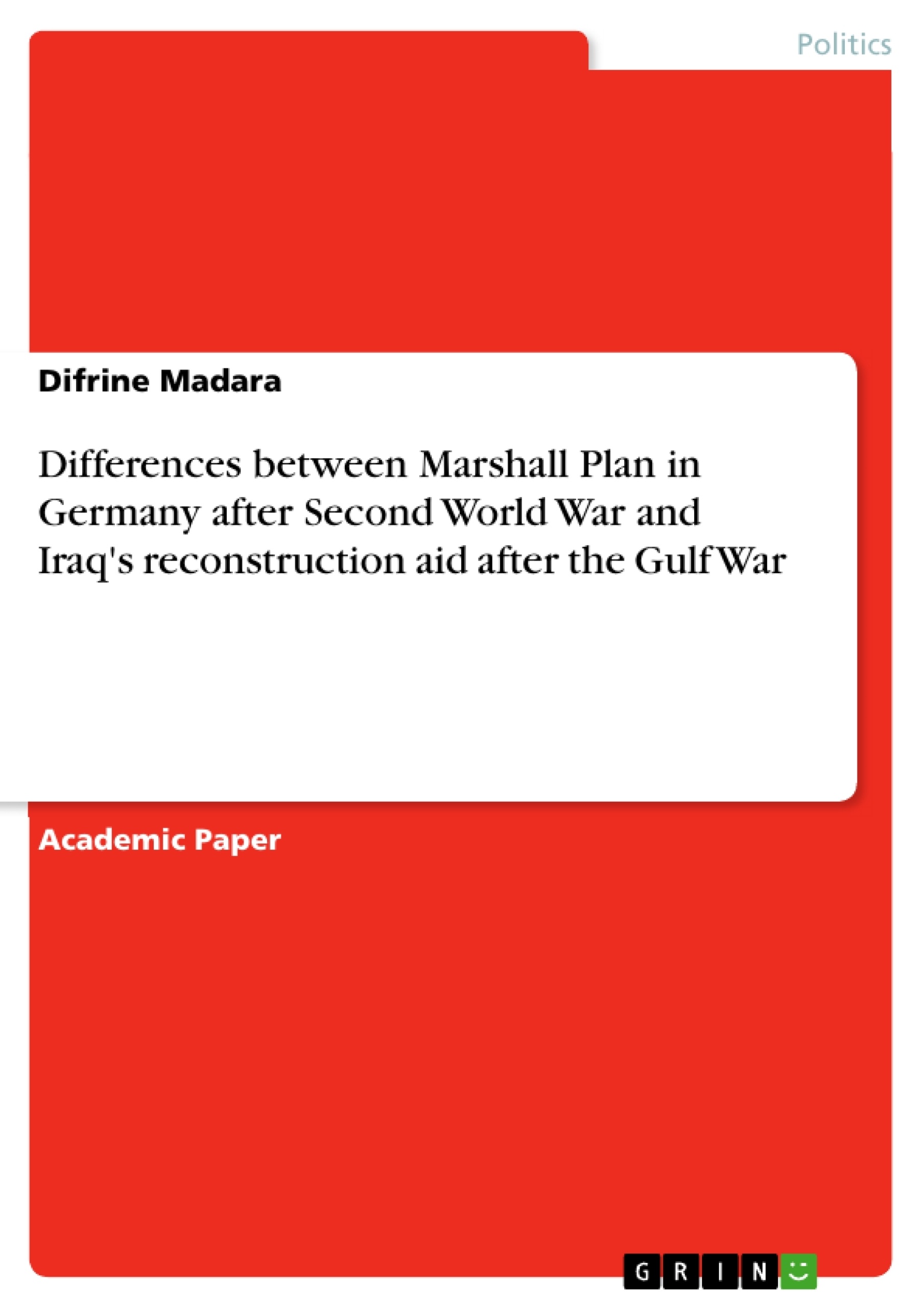Many scholars consider the Marshall Plan as the most successful foreign policy initiative in the U.S history. In the recent past, the term has been used as a campaign tool for American foreign policy abroad. Since the end of Germany’s Marshall Plan in the 1950s, none of the subsequent economic recovery plans have had similar levels of impact.
On June 5, 1947, the secretary of state General George C Marshall suggested that United States provide economic aid to assist Europe in recovering from the devastation of World War II. The Congress appropriated $13.3 billion (more than $100 billion in today's dollars) to be used over four years to reconstruct Europe. This plan is considered successful in Europe, especially in Germany, where it significantly boosted economic growth. Consequently, future administrations adopted similar approaches in an attempt to stimulate economies abroad. The most recent similar plan is the George W Bush reconstruction plan for Iraq. The ‘Marshall Plan’ for Iraq failed to spark similar success like in Germany in the 1950s. Arkes (2015) intimated that the failure of Iraq’s ‘Marshall Plan’ can be attributed to differences in political, economic, and security conditions. In this section, we critically review the Marshall Plan as a model of reconstruction aid by comparing the conditions and outcomes in Germany and Iraq.
Inhaltsverzeichnis (Table of Contents)
- Comparison between Germany and Iraq's Economies before WWII and the Gulf War Respectively
- Germany's Economy before WWII
- Iraq's Economy before the Gulf War
- Marshall Plan Instruments Used In Germany
- Reconstruction Aid Instruments Used In Iraq
- Absorption of Aid in Germany and Iraq
- Conclusion
Zielsetzung und Themenschwerpunkte (Objectives and Key Themes)
This paper critically examines the Marshall Plan as a model for reconstruction aid by comparing the conditions and outcomes in Germany and Iraq. The analysis aims to understand the factors that led to the success of the Marshall Plan in Germany and the challenges faced by the reconstruction plan in Iraq. The paper seeks to highlight the importance of political, economic, and security conditions in determining the effectiveness of reconstruction aid programs.
- Comparison of economic conditions in Germany and Iraq before World War II and the Gulf War.
- Analysis of the instruments used in the Marshall Plan and the Iraqi reconstruction plan.
- Assessment of the absorption of aid in both Germany and Iraq.
- Examination of the political, economic, and security factors influencing the success of reconstruction efforts.
- Evaluation of the Marshall Plan as a model for reconstruction aid in different contexts.
Zusammenfassung der Kapitel (Chapter Summaries)
- Comparison between Germany and Iraq's Economies before WWII and the Gulf War Respectively: This chapter provides a detailed comparison of the economic conditions in Germany and Iraq before the respective conflicts. It examines the impact of the Treaty of Versailles on Germany's economy and the challenges faced by Iraq due to the Gulf War.
- Germany's Economy before WWII: This chapter dives deep into the economic situation of Germany in the period preceding World War II, analyzing the effects of hyperinflation, the Great Depression, and the rise of the Nazi regime. It explores how Germany's economy was impacted by the Treaty of Versailles and the subsequent reparations payments.
- Iraq's Economy before the Gulf War: This chapter delves into the economic state of Iraq leading up to the Gulf War. It examines the country's economic reliance on oil and the consequences of the war on its infrastructure and economic stability.
- Marshall Plan Instruments Used In Germany: This chapter examines the various instruments employed by the Marshall Plan in assisting Germany's economic recovery after World War II. It explores how the plan fostered economic growth and stability in Germany.
- Reconstruction Aid Instruments Used In Iraq: This chapter analyzes the tools used in the reconstruction efforts in Iraq after the Gulf War. It contrasts these instruments with those used in the Marshall Plan, highlighting the differences in their implementation and effectiveness.
Schlüsselwörter (Keywords)
The main keywords and focus topics of this paper include: Marshall Plan, reconstruction aid, Germany, Iraq, economic recovery, political stability, security conditions, foreign policy, economic growth, development, absorption of aid, and comparative analysis.
- Quote paper
- Difrine Madara (Author), 2019, Differences between Marshall Plan in Germany after Second World War and Iraq's reconstruction aid after the Gulf War, Munich, GRIN Verlag, https://www.grin.com/document/961648




